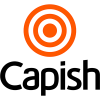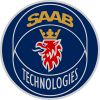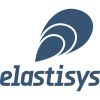from student to professor, from deep thinking to product company
The State of AI
Artificial Intelligence and Machine Learning are buzzwords of the last few years. But it has been a very long road to get here - depending on how we count, at least from the fifties. Fast-forward, and we can today offer you various insights from around the industry.
We have a professor who will share his latest thoughts on what it means with data. There is also the student who uses AI/ML together with psychology. And how about the doctor at math who detects cancer and fingerprints? And finally, the product company that keeps our code safe.
Join us for an evening of eye-openers within AI/ML!
First talk by Med. Dr. Lars Lindsköld, Region Västra Götaland
When we have more data than statistics, does the world become equal?
Some thoughts from the collectors in the care! Are "sick" data more sensitive than other data and what can they teach us that we do not know today,
Our ability to measure has never been greater, we produce measurement values from sensors and other devices all the time, how can we use this data to better understand how we can prevent and alleviate disease in the long run. 12 minutes on how health data in real time can change our knowledge of prevention and prediction. Can we act better towards data or continue retrospectively on our statistics?
Second talk by August Nilsson, Master Student
Understanding the language through well-being, personality, and psychopaths through AI
How do people express their well-being in words? Which words do psychopaths use on Twitter? What is the language of extraverts on Facebook messenger? Apart from predicting the next word one will write or correct one's grammar, language-focused artificial intelligence (natural language processing) can today be used in psychology research. The Natural Language Processing development has exploded in the past years, including a battle of the giants between the big tech companies to create the strongest language model. The progress helps psychology researchers to get a deeper, complementary, and more thorough understanding of human beings by enabling text data analysis instead of traditional numerical data analysis.
Third talk by Emil Wåreus, debricked
Semantic Code Discovery - AI-powered code recommendations
One of the greatest benefits of open source is that developers doesn’t have to reinvent the wheel for every piece of software they need. But how can developers find the right wheel to use, is reading a 6 year old forum thread really the best way? Code and functionality search is a challenging topic with a ton of new research in recent years. In this talk, Emil will give an introduction to semantic code search and how to find code using words.
Debricked tries to leverage machine learning to help developers discover the best open source functionality to their problems.
Fourth talk by Kerstin Johnsson, Softhouse
How do you trust an AI and when do you need to?
AI has found its way to all kinds of applications: from cancer detection to smart autocompletion. But AI predictions are stochastic, meaning that there are elements of randomness in them, and results are often not perfect. How can developers design software so that the user puts an appropriate level of trust in the AI predictions? And how do you make a user interact with the AI efficiently?
**All presentations will also be live streamed on YouTube, so anyone can watch it here without signup: https://www.youtube.com/FooCafeOrgMalmo/live
The discussions after the break will take place on Zoom. Please follow this link to take part on the discussions over zoom that starts 19.20 on the event evening: https://us06web.zoom.us/j/81732866542?pwd=VG41OXYyeUdIOFdZZUxPeHNPRjlDUT09
Speaker:
Med. Dr. Lars Lindsköld - has a long digitalization experience in Radiology, Pathology, Health Data, and Teledermatology (e-Health). His research is based on Interoperability within big data and AI, focusing on Semantic Interoperability driven by profession. Today it is working together with the medical profession to create Medical Machine-Readable resources that will increase the automatic portability of data from various IT systems and AI Applications to support better the journey of the disease that will include actors as the individuals, clinicians, researchers, and industry.
August Nilsson - is a student in his final master’s semester, who merges psychology and natural language processing in positive and personality psychology research projects. Today, he explores holistic well-being measures that can be used cross-culturally, together with researchers from Gallup and supervised by Dr. Oscar Kjell.
Emil Wåreus - is a spaghetti coder, ML trainer, agent builder, and cat owner. He previously founded Debricked, a security based startup based in Malmö that he exited by acquisition a few years back. He is now building his next ventures, including oaiz.io for AI that builds AI, podidex.com that creates personal podcasts, and valkompass.ai to help voters explore Swedish politics.
Kerstin Johnsson - has worked with deep learning software development for many years, for example with AI-assisted prostate cancer assessments and fingerprint authentication. She is a consultant at Softhouse Consulting, where she also develops their Applied AI capabilities.
Facilitator:
Björn Granvik - has close to three decades of experience as a developer, manager and speaker within IT. born and raised in various programming languages, he still believes that "people matters most". The latter can explain his love of interacting and sharing knowledge, mostly on various technical subjects and agile project management methods. He is a recurring speaker and moderator in everything from user groups to international conferences. It is this mix of – code, knowledge and people – that Björn excels.
Agenda:
17.30 - 17.45 – Meet & Greet
17.45 - 17.50 – Welcome - Introduction first speaker
17.50 - 18.02 – Presentation 1
18.02 - 18.05 – Intro second speaker
18.05 - 18.17 – Presentation 2
18.17 - 18.20 – Intro third speaker
18.20 - 18.32 – Presentation 3
18.32 - 18.35 – Intro forth speaker
18.35 - 18.47 – Presentation 4
18.47 - 18.50 – Short summary
18.50 - 19.20 – Meet & Eat
19.20 - 19.25 – Divid attendees in discussion groups
19.25 - 19.55 – Discussion in groups
19.55 - 20.00 – Thank you note






